Films with theme "Documentary films about racism", sorted by revenue
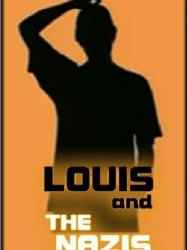 , 1h20
, 1h20Origin United-kingdom
Genres Documentary
Themes Films about racism, Documentary films about racism, Documentary films about law, Documentaire sur une personnalité
Actors Louis Theroux

Deacon of Death (2005)
Genres Documentary
Themes Films about racism, Documentary films about racism, Documentary films about law, Documentary films about war, Documentary films about historical events, Documentaire sur une personnalité

Home of the Brave (2004)
, 1h15Origin USA
Genres Documentary
Themes Films about racism, Documentary films about racism, Documentary films about law, Documentary films about historical events, Documentaire sur une personnalité, Documentary films about politics, Political films
Actors Stockard Channing, Gloria Steinem

Monkey Dance (2004)
Directed by Julie Mallozzi
Themes Films about children, Films about immigration, Films about racism, Documentary films about racism, Documentary films about law, Documentary films about war, Documentary films about historical events, Documentaire sur une personnalité
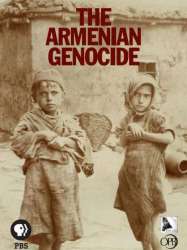
The Armenian Genocide (2006)
, 1hDirected by Andrew Goldberg
Origin USA
Genres Documentary, Historical
Themes Films about racism, Documentary films about racism, Documentary films about law, Documentary films about war, Documentary films about historical events, Documentaire sur une personnalité, Political films
Actors Laura Linney, Julianna Margulies, Orlando Bloom, Natalie Portman, Louis Zorich, Ed Harris
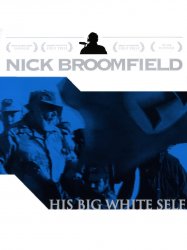
His Big White Self (2006)
, 1h25Directed by Nick Broomfield
Genres Documentary
Themes Films set in Africa, Films about racism, Documentary films about racism, Documentary films about law, Documentaire sur une personnalité, Documentary films about politics, Political films
Actors Nick Broomfield
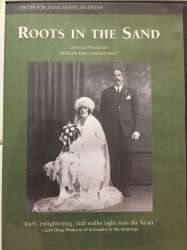
United Gates of America (2007)
, 1hOrigin United-kingdom
Genres Documentary
Themes Films about immigration, Films about racism, Documentary films about racism, Documentary films about law, Documentaire sur une personnalité, Documentary films about cities

Mississippi Cold Case (2007)
, 42minutesOrigin Canada
Genres Documentary
Themes Films about racism, Documentary films about racism, Documentary films about law, Documentary films about historical events, Documentaire sur une personnalité, Documentary films about politics, Political films
 , 1h5
, 1h5Origin Canada
Genres Documentary
Themes Films about children, Films about racism, Films about religion, Documentary films about racism, Documentary films about law, Documentary films about war, Documentary films about historical events, Documentaire sur une personnalité, Documentary films about religion, Political films, Films about Jews and Judaism, Documentary films about World War II
The documentary tells the story of Chief Justice Inspector Friedrich Kellner and the ten-volume secret diary he wrote during World War II in Laubach, Germany, to record the misdeeds of the Nazis. The movie uses reenactments and archival footage and interviews to recount the lives of Friedrich Kellner, who risked his life to write the diary, and of his orphaned American grandson, Robert Scott Kellner, who located his grandparents in Germany, and then spent much of his life bringing the Kellner diary to the public.

Nazi Pop Twins (2007)
Genres Documentary
Themes Films about music and musicians, Films about racism, Documentary films about racism, Documentary films about law, Documentary films about music and musicians, Documentaire sur une personnalité, Documentary films about politics, Musical films, Political films

Directed by Gail Dolgin
Genres Documentary, Historical
Themes Films about racism, Documentary films about racism, Documentary films about law, Documentary films about war, Documentary films about historical events, Documentaire sur une personnalité, Documentary films about politics, Documentary films about health care, Political films
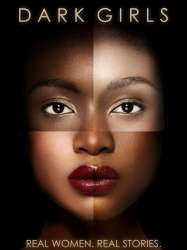
Dark Girls (2011)
Directed by Bill Duke
Origin USA
Genres Documentary
Themes Films about racism, Documentary films about racism, Documentary films about law, Documentaire sur une personnalité

Meeting David Wilson (2008)
Genres Documentary
Themes Films about slavery, Films about racism, Documentary films about racism, Documentary films about law, Documentary films about historical events, Documentaire sur une personnalité

The Slanted Screen (2006)
Genres Documentary
Themes Films about racism, Documentary films about business, Documentary films about the film industry, Documentary films about racism, Documentary films about law, Documentaire sur une personnalité
Actors Frankie Chan, Kelvin Han Yee, Bobby Lee, Jason Scott Lee, Will Yun Lee, Tzi Ma

Portrecista (2005)
, 52minutesGenres Documentary
Themes Films about racism, Films about religion, Documentary films about the visual arts, Documentary films about racism, Documentary films about law, Documentary films about war, Documentary films about historical events, Documentaire sur une personnalité, Documentary films about religion, Political films, Films about Jews and Judaism, Documentary films about World War II
Portrecista (The Portraitist) examines the life and work of Wilhelm Brasse, who had been trained as a portrait photographer at his aunt's studio prior to World War II and passionately loved taking photographs. After his capture and imprisonment by the Nazis at Auschwitz concentration camp in 1940, at the age of 23, he was forced to take "identity pictures" of between approximately 40,000 to 50,000 other inmates between 1940 and 1945. With "courage and skill", documenting "cruelty which goes beyond all words ... for future generations", after his liberation at the end of World War II, Brasse "could not continue with his profession" and would never take another photograph.
 Connection
Connection